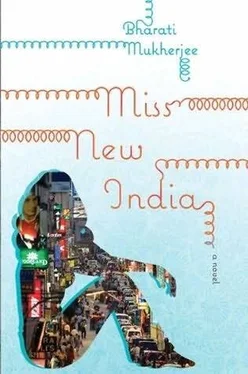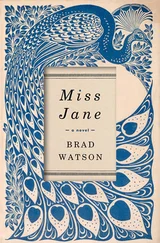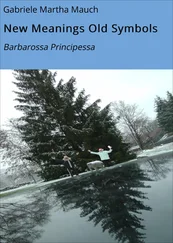Your loving daughter, A.
She was Anjali. She could look down and see poor little Angie whimpering on her bed.
The dark alleys of Gauripur by night were unknown to her. The night air was even warmer than the stillness of the bedroom, and filled with groans and coughs and sharp words and the occasional horn-but many sounds were simply unplaceable, maybe the wings of bats, maybe just the creaking of the earth resting from the day's abuse, the brushing of thick leaves against one another, the urgent business in the bushes of dogs and men, rats and mongooses, the endless grinding of a million small claws and the hot breezes against tree limbs and rocks and movie posters nailed to every lamppost, and she thought then, as she often did, that ghosts explained it all, just as the stars at night or the face on the moon had told stories to our ancestors. Men sleeping on the broken footpath, a cast of nighttime characters invisible by day, playing cards under the streetlamp and making animal noises, calling to her to come for a drink (the last thing they expected to see, a determined young lady pulling a noisy suitcase over the paving stones down the middle of the street). The distance between her house and Nehru Park had never seemed so vast, and the park never so dark and full of trees and tall grass, the town itself never so small, disheveled, and evil smelling.
It was five o'clock, an hour and a half before dawn, as she reckoned it. A few lights were already on, servants perhaps, starting their masters' day. Her mother would rise at dawn and perhaps not even notice the empty bed until she returned a few minutes later, with tea. Then she would see the sari. She would pick it up and hold it to her face, and she would sense what had happened. She would do all this before waking her husband. Maybe she'd even find the letter before waking him. Would she be screaming, or crying, or would she coldly accuse her husband-"You see what you've done? No jamais, and now no daughters!" What would her mother do, what would she say? Anjali couldn't predict.
She stood on the footpath outside Peter's apartment. Five-fifteen. Five-twenty. Along LBS Road, the early risers were on the march: clusters of young men laughing and jostling; a troop of haughty langurs after a night of garden plunder, their tails high and curled, sauntering back to the safety of Nehru Park and a day of mugging for photos and begging for ground nuts; older men in khaki uniforms, on bicycles, pulling carts of empty, rattling milk pails; bedraggled rag-and-paper pickers bent under enormous burlap bundles; and men lifting a corner of their dhoti or setting down a briefcase and unbuttoning their suit pants to relieve themselves against the public walls. Municipal workers dumped cartloads of trash along the gutters, swarmed by dogs and pigs and curious cows and a row of squawking crows perched atop the public walls: the predawn stretching and coughing and nostril clearing of a small Indian city.
In an hour-the hour at which she was normally awake to begin her school day-the roadways would be jammed with all manner of vehicles, the noise level so high she'd abandon all hope of conversation, the sun already high and hot. She, who'd aroused such unwelcome interest an hour earlier, was invisible to everyone now. At five-thirty the lights went on in Peter's apartment. She waited another five minutes; then, leaving her Samsonite on the bottom stair, she picked her way to the landing between new rows of terra-cotta flowerpots. She rapped twice on the blue door.
When Ali opened it, she greeted him with a smile and by name, not as a servant but as just another boy of nearly her own age. "I have to see Peter," she said. Peter, not your master, not Mr. Champion. He let her in and then went down the stairs to retrieve her bag.
Peter was standing by the two-burner gas stove, sipping his morning tea. He wore pajama bottoms, and a knotted shawl covered his chest. For just an instant he stared, and she wanted to say "It's me, Angie. I know it's early, I know this is shocking," but he refocused his eyes and smiled. He took a step toward her, arms out, and she took a step forward, then another, and found herself in his arms-he, who'd barely ever touched her, had never even shaken her hand.
Ali came back with the red suitcase. For a moment he seemed confused, then scampered to the almirah and took out an ironed shirt. He lifted Peter's shawl, folded it, then helped Peter into the shirt. He buttoned it. The action was, to Anjali, tender, even erotic. Ali's fingernails were long and red. Then he took down a mug and poured tea for her.
"Ginger cookie?" Peter asked, and Ali lifted a cloth off a platter. "Please," he said. "Things must have taken a bad turn."
"Very bad," she said. "I should have seen it coming."
"As I remember your last visit, we didn't part on the best of terms. There was that question of a marriage portrait. After you left, I thought to write you an apology-"
"I was so confused. I went straightway to the college and asked poor Nirmal Gupta to post that portrait on the biggest wedding site he could find. You said that picture would only cause trouble, but I thought that it would change everything. And just look what it did. I still don't know anything except that I was vain, and I caused that boy's death, and for a while, I thought maybe mine too. The boy my parents want me to marry attacked me. I had to leave."
PETER SICNALED TO Ali and pointed to the almirah. Ali came back with a round cookie tin. Inside were stapled stacks of hundred-rupee notes. He began counting them; each stack a hundred notes, ten thousand rupees. Twenty, thirty, forty, fifty thousand rupees, half a lakh, more money than she'd ever seen, ever handled.
"This may seem like a lot of money," Peter said, "and for a girl in Gauripur, it may be. But you can make this in a couple of months in Bangalore." He slipped the entire tin into her backpack.
"You have the two names and addresses I gave you?"
"Yes," she said. She pointed to the Samsonite. "Everything I have is in that." She sipped her tea and nibbled on a proffered ginger cookie. "Two saris, two salwar-kameezes, three pairs of jeans, and my T-shirts." She patted the closing flap of her backpack. "And addresses of your two friends in Bangalore."
"Don't lose those addresses, Angie. I'll write them so they expect you. And guard the money just short of your life. The train to Bangalore leaves at nine o' clock. Ali will walk you to the station."
"I didn't reserve," she said. "How could I reserve a train ticket with my father sitting in the railway office? He would have heard of it." She had imagined his furor over and over again: " Bose-babu, quick, quick! Daughter is buying one-way ticket to Bangalore! "
"Anyway, I thought there'd be a wedding."
"Or you counted on a magic solution?"
"I want to go to Patna and visit my sister there. Then she can buy a train ticket for me."
"Then the intercity bus is your only option." Peter seemed to be contemplating a gargantuan task. "Lord," he sighed. "I did it thirty years ago. We had to close the windows against dacoits and tribals with bows and arrows. The price you pay for procrastinating."
She recognized the word but had never used it.
"Putting things off-you've got to work on that."
"I will."
"When? Tomorrow?" But he asked the questions with a smile, gathered up the remaining cookies in the cloth, and knotted the ends. "Who knows when you'll get to eat next?"
"Thank you for the ginger biscuits," she murmured to Ali.
Ali went to the pantry and came back with a bottle of water and two bruised apples. In elaborate Urdu she could barely follow, he asked Peter for directions to the bus station. Peter instructed Ali to take enough money with him to buy the bus ticket to Patna for her, so she wouldn't have to take out her cookie tin in the crowded station.
Читать дальше












